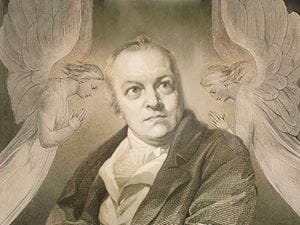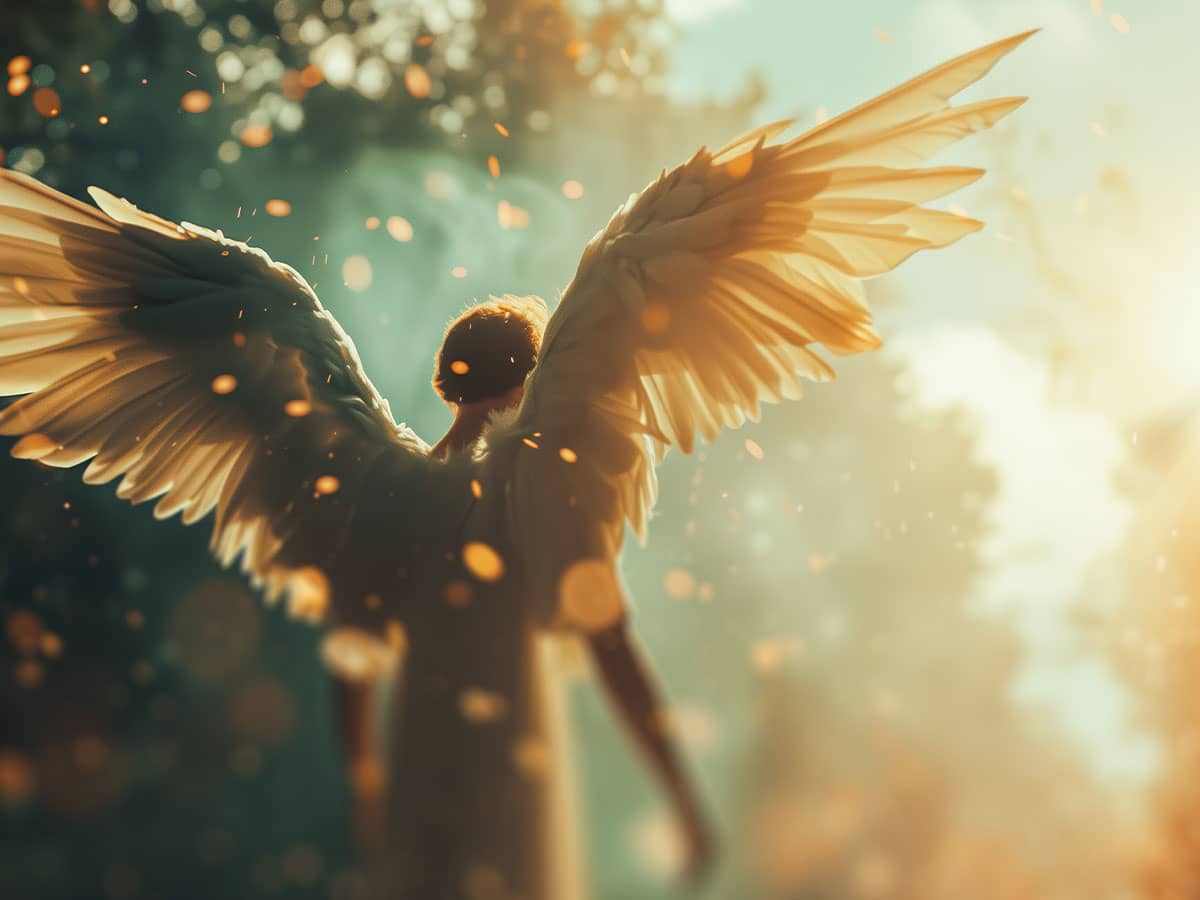
Blake believed much of his inspiration came from his lifetime encounters with angels. Born in London in November 1757, young William was only 10 years old when he saw a vision of angels clustered in the branches of a tree near his home. From then on, wherever he went, Blake saw visions from the other world, from angels in a hayfield, to apparitions of monks in Westminster Abbey. He talked with the angel Gabriel and the Virgin Mary as well as other historical figures.
Far from scoffing, William’s parents believed in his visions. Even though they were not well off, they offered to help him become a painter so that he could portray his otherworldly companions. But William decided instead to train as an engraver, a profession that was not only less expensive to learn, but more likely to give him an income faster.
Although William’s experience as an engraving student was not particularly happy, in his adult years he went on to revolutionize the art. When William was 30, his brother Robert died; William believed he saw his brother’s spirit rise from his lifeless body. Later, Robert appeared to William in a vision, describing an invention that would forever change the art of engraving. By the time a year had passed, William had invented the new technique he had seen in this vision, called “illuminated printing."
Blake was also a poet; his first poems were collected in a hand-printed edition by friends when he was only 12 years old. Blake went on to write some of the most memorable lines in the English language in his two books, Songs of Innocence and Songs of Experience. Blake’s engraving method allowed him to illustrate his own poems as well as the classics, bringing to vibrant life works including the Book of Job and Dante's Divine Comedy.
As a young man, Blake had married Catherine Boucher, who became his partner and lifetime love. Illiterate when they met, Catherine learned from Blake to read and write; eventually they worked side by side, she printing and coloring the engravings he produced. Together, they created the extraordinary work that resulted from Blake’s visions and spiritual experiences.
Blake was a poor man when he died in August 1827. Catherine was forced to borrow the money for his small funeral, and buried him in a common grave in Bunhill Cemetery. London.
In his poem “The Angel That Presided," Blake wrote what might be his own epitaph:
The Angel that presided o'er my birth
Said, "Little creature, formed of joy and mirth,
Go love without the help of any thing on earth.”
Apart from his wife and family, Blake might not have had help--or recognition--from many people on earth. But his legacy in art and poetry had the help of angels.

